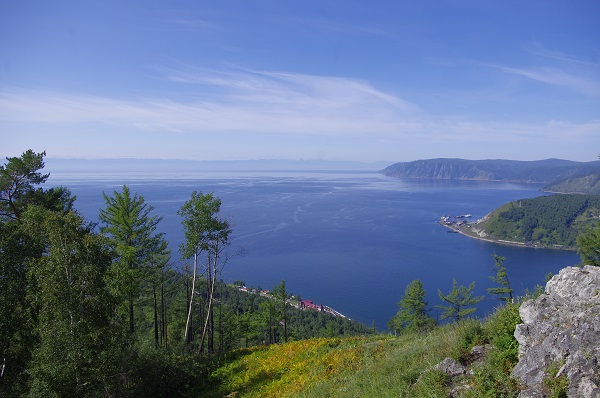Siberians resist Chinese investment
March 17, 2019 | Expert Insights

A Siberian petition to hinder Chinese investment around Lake Baikal gathers momentum amidst greater engagement by Russia and China to form a geopolitical juggernaut.
Background
Official relations between China and Russia were initiated by border clashes in the 17thCentury. Since then, both countries have undergone significant ideological, political and economic upheaval. Russia is the only European power to share a land border with China, leading to cordial relations through most of their history. Sitting on opposite ends of Siberia, which was populated by independent nomadic groups, the two nations clashed over land rights in the region. As communist nations, the 1960s and ’70s were marked by periods of Sino-Soviet conflict, causing significant bitterness. This led to a formal split between the two neighbours in 1979 when Russia was still the Soviet Union.
In recent years, in an effort to offset America’s geopolitical reach, China and Russia have sought to forge closer ties. Both countries seek to position themselves as peer competitors to the United States, with Russia becoming China’s biggest and most secure supplier of crude oil. In 2018, China-Russian trade had reached the US $107 billion dollars, with Russia ranking first among China’s 10 largest trade partners in terms of turnover growth. 2019 marks the 70thanniversary of the establishment of diplomatic ties.
Chinese leader Xi Jinping and Russian leader Vladimir Putin have met repeatedly in the recent past and have often aligned on multiple issues in world affairs. As authoritarian leaders, Xi and Putin share a number of similarities.
Analysis
On March 15, 2019, a Russian court ordered the suspension of a Chinese-funded project to bottle water from Russia’s Lake Baikal. The court halted the construction of a plant in the village of Kultuk in order to allow for investigations into complaints of violations.
The plant was being built by the Russian AkvaSib company, which had intended to start production in late-2019. An AkvaSib representative said that the plant had passed through necessary hearings and received the green light after a thorough environmental evaluation. Ecologists and local authorities had painted the bottling of water from the world’s largest lake as a “green” way of profiting from Siberia’s immense natural resources. The financial backing for the project comes from a company called “Baikal Lake,” based in China’s Daqing, who provided US$ 21 million according to a statement by Russian authorities, who gave the project priority status. The company had assured authorities that the facility would not restrict village access to the lake and would provide 150 local jobs, in addition to tax revenue.
The plant caused a backlash among locals, where Siberians perceive the project as a Chinese land-grab. A petition with almost a million signatures called for Russian “patriots” to demand the removal of the “Chinese plant on the shores of our Lake Baikal.” The petition which gathered momentum without participation by any major environmental NGO’s, claims that the facility will block local access to the lake and will “inflict irreparable damage” to the UNESCO World Heritage Site.
The petition comes among similar protests against China cutting down forests across Siberia, leading some local government to cull agreements with Chinese companies. The Russian Ruble crashed in 2014, following which the Russian government eased tourist visa restrictions in order to stimulate the economy. Local distrust of Chinese intentions was fermented during this period. A recent state TV report, “Baikal on Tap,” focused on a Chinese hotel for Chinese tourists officially listed as a private home. A local reporter elucidated that there were two things that caused immediate reactions among Siberians; “One is the Chinese, which ‘have taken over everything and leave trash,’ and the second is an encroachment on the lake. And here it so happens that the company building the plant is 99 percent-owned by Chinese nationals.”
Such a reaction by local Siberians highlights the disconnect between Siberia and the Russian government. The issue is likely to be a thorn in the side of Sino-Russian relations as they look to enhance their relationship to offset America’s geopolitical presence.
Assessment
Our assessment is that Siberian reaction to Chinese investment in Baikal is a genuine, grass-roots movement focused on protecting their resources. We believe that Russia is likely to brush the issue under the carpet in order to focus on larger considerations with China.
Image Courtesy: https://upload.wikimedia.org/wikipedia/commons/a/a4/Jezioro_Bajka%C5%82_2.jpg, W0zny [CC BY-SA 3.0 (https://creativecommons.org/licenses/by-sa/3.0)]








Comments